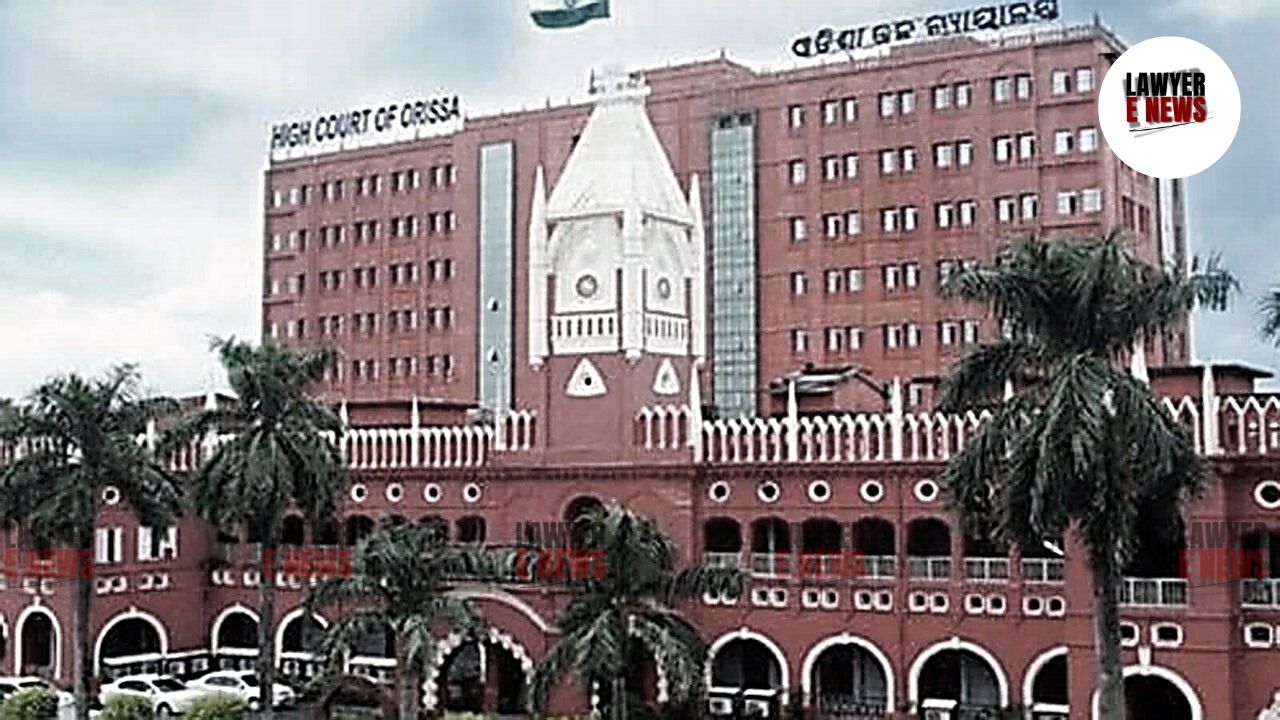-
by Admin
15 February 2026 5:35 AM



Orissa High Court, Cuttack, in Subhransu Kumar Mohapatra vs. Rukmuni Mohapatra, Civil Revision Petition No. 32 of 2022, delivered a significant ruling addressing the substitution of a legal representative in a suit where the substitution was based on an unprobated Will. The Court upheld the substitution of the opposite party (the daughter-in-law of the deceased plaintiff) under Order XXII Rule 3 of the CPC, permitting her to continue the suit based on a Will. The Court observed that while probate certifies the executor's title, it is not a precondition to continuing a suit, as the legatee under a Will can act as a legal representative.
The original plaintiff, Sarojini Mohapatra, had filed a suit for a declaration that a gift deed executed in favor of her son, Subhransu Kumar Mohapatra (the petitioner), was null and void, and sought a permanent injunction against him. During the pendency of the suit, Sarojini passed away, and her daughter-in-law, Rukmuni Mohapatra (the opposite party), filed a petition to be substituted as the legal representative under Order XXII Rule 3 CPC, based on a Will executed in her favor. The petitioner objected, contending that no right to continue the suit could arise until probate was granted.
Right to Sue Based on an Unprobated Will: The petitioner argued that under Section 213 of the Indian Succession Act, 1925, no legal right could arise from a Will unless probate had been granted. The petitioner claimed that the Will needed to be probated before Rukmuni Mohapatra could be substituted.
Definition of Legal Representative under CPC: The key issue was whether a legatee under an unprobated Will qualifies as a "legal representative" under Section 2(11) of the CPC.
Role of Probate: Whether probate is a precondition for a legatee to continue a suit as a legal representative or merely confirms the executor’s title.
The Court ruled that under Section 211 of the Indian Succession Act, 1925, an executor derives authority from the Will itself and not from the probate. Therefore, the legatee can be substituted as a legal representative even before probate is granted.
It was observed: “An executor by virtue of his office… takes an estate in the property of the deceased and a legal character is vested in him. In the present case, the Will also empowers the executor… to sell the property. The executor represents the estate even before he has taken the probate.”
The opposite party was considered a legal representative under Section 2(11) of the CPC, as she had an interest in the estate of the deceased through the Will. The Court explained that a legal representative includes anyone who intermeddles with the estate, not just natural heirs.
The Court noted that “in the absence of any rival claimant claiming to be the legal representative… the High Court was not justified in setting aside the order of the Executing Court, when in terms of Order XXII Rule 5 of the Code, the jurisdiction to determine who is a legal heir is summary in nature.”
The Court clarified that any decree in favor of the legatee would be contingent upon the subsequent grant of probate. This ensures that the substantive right to the property is adjudicated in accordance with the probate proceedings.
The Orissa High Court dismissed the civil revision petition, affirming the decision of the trial court to allow the substitution of the opposite party as the legal representative of the deceased plaintiff. The legatee, Rukmuni Mohapatra, can continue the suit, but any decree passed in her favor will be subject to probate of the Will. The Court emphasized that the absence of probate does not prevent the substitution or the continuation of the suit but any final decree will be contingent on the probate.
Date of Decision: September 23, 2024
Subhransu Kumar Mohapatra vs. Rukmuni Mohapatra
